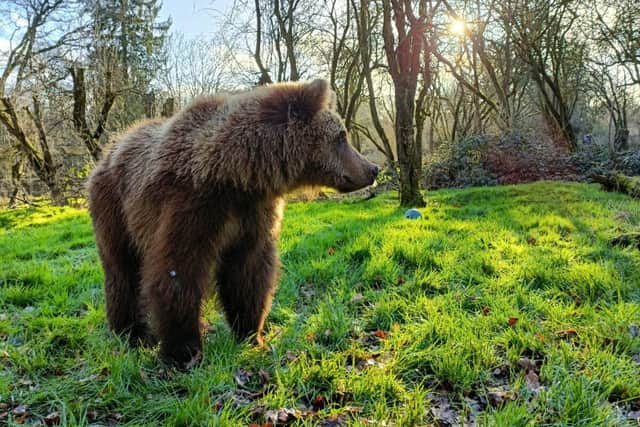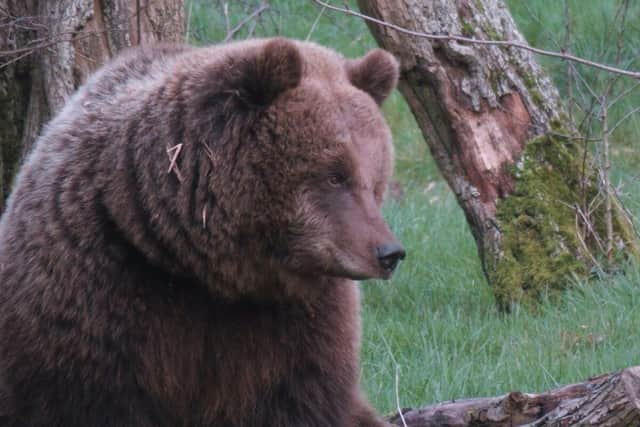Bear-o'clock – time to wake up
This article contains affiliate links. We may earn a small commission on items purchased through this article, but that does not affect our editorial judgement.
and live on Freeview channel 276
After four months of deep slumber, Whipsnade Zoo’s four European Brown bears have awoken, just in time for the February half term in Bedfordshire.
Zookeeper Sarah McGregor said first on the agenda for the four girls, was a swim and a frolic through the woods.
Advertisement
Hide AdAdvertisement
Hide Ad“There’s no better way to wake up and shake off the winter cobwebs than with a splash in the pond and then a spot of sunbathing. Three-year-old Naya was in her element and is making the most of the rare sunny spells,” she said.


Sarah explained that in the wild most bears snooze during winter when food is scarce. “Every year we set up a specialised nutritional plan for our brown bears to make sure they get enough calories, and to ensure they’re nice and fat for the winter months when they crawl into their cozy dens for a long, deep sleep.”
During torpor, the bears breathing, heartbeat and circulation slows right down, but as in the wild the bears remain ready to defend their territory if needed.
“Every so often the girls would briefly wake up and poke their head out, or maybe even wander outside to explore their paddock, before going back for another sleep. But now we can officially say the four girls are up and at ‘em.”
Advertisement
Hide AdAdvertisement
Hide AdMinnie, Mana and Naya arrived at the UK’s largest zoo in 2023 from Sweden.


Sarah added: “As a young group they’re very active and enjoy swimming, running, climbing trees, as well as playing with each other.
“Our bears are great ambassadors for their species. Sadly, some European brown bears are at risk of extinction in the wild due to human-wildlife conflict and loss of habitat.”
A recent report led by ZSL researchers and commissioned by Rewilding Europe, found better legal protection, enlarging protected area, rewilding and dedicated species recovery work were some of the most effective ways to protect brown bears and aid the species recovery throughout Europe.
Advertisement
Hide AdAdvertisement
Hide AdSarah added: “ZSL, the international conservation charity behind Whipsnade Zoo, is working around the world to restore ecosystems and protect important species. We’re so lucky to have Naya, Cinderella, Mana and Minnie at the conservation zoo to educate visitors on the threats facing bears in the wild and what we can all do to help.”
Visit Whipsnade Zoo this February to get closer to nature and help solve wildlife crime at Vets in Action. Running until February 25, children can step into the role of a vet at Whipsnade Zoo. Vets in Action is free with entry to the zoo, with every ticket helps to supports ZSL’s vital science and conservation work around the globe: www.whipsnadezoo.org